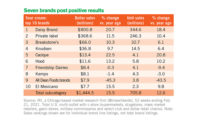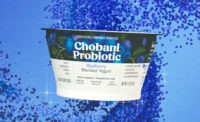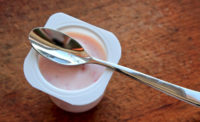Add health-and-wellness appeal to cultured dairy
Cultured dairy products that deliver gut health benefits, added protein and less sugar will resonate with today’s consumers.

Photo courtesy of IGphotography on gettyimages.com
Prior to the COVID-19 pandemic, consumers already were showing “deep interest” in their own health and wellbeing (and that of animals and the planet), according to Chicago-based ADM. And that interest-only intensified with the arrival of the pandemic.
“Health and wellness remain at the forefront of the global conversation,” said June Lin, vice president, global marketing, health & wellness at ADM, in an August 2021 press release detailing consumer health-and-wellness-related lifestyle shifts. “The pandemic has transformed how consumers perceive holistic health and wellbeing. It’s impacting how we live and increasing the importance of the foods, beverages, and supplements we choose, presenting new opportunities for our industry to meet their needs.”
The cultured dairy category is certainly one food and beverage category that’s embracing these new opportunities. A number of cultured dairy processors are tapping into health-and-wellness-related consumer trends to reimagine yogurt, kefir, sour cream, cottage cheese, cream cheese, and more. Other cultured dairy processors that act soon on these trends will increase their potential for success going forward.
Go for the gut

One of the most significant health-and-wellness-related trends is product development that focuses on consumers’ growing interest in gut health. According to Jesse Merrill, CEO of Irvine, Calif.-based Good Culture, gut health is more important and more relevant to consumers than ever before.
“As the body of evidence grows linking gut health to microbiome diversity, overall health and longevity, more and more consumers are looking for foods that promote a healthy gut,” he says. “Gut health has been proven to be a critical component in building one’s immunity strength.”
Merrill adds that recent studies also have linked a healthy gut with heart health and other benefits. Cultured dairy products with live and active cultures (in the form of probiotics), therefore, are most definitely on-trend.
What’s more, the science behind gut health is rapidly evolving, and “clinical evidence is becoming more robust,” adds Niel Sandfort, chief innovation officer for New Berlin, N.Y.-based Chobani LLC. Consumers are very engaged in this area, too.
“Cultured dairy is benefiting from the larger fermentation movement,” he explains. “Many consumers understand that cultured dairy has live and active cultures, but we think there is an opportunity to educate consumers more broadly that cultured dairy is a fermented product.”
With consumers spending more time at home and putting greater emphasis on their overall wellness, there is demand for products that not only are healthy but also offer functional benefits, notes Pedro Silveira, president, yogurt for White Plains, N.Y.- and Broomfield, Colo.-based Danone North America.
Recognizing that reality, Danone North America recently modernized its Activia yogurt brand “to drive a contemporary gut health message,” he says. As a result, the brand has seen sustained growth.
“We also launched Activia Dailies, a drinkable yogurt that is the epitome of convenience, Silveira says. “This is a great option for consumers who are returning to busy, on-the-go lifestyles but don’t want to sacrifice the benefits of a healthy yogurt.”
Yogurt doesn’t have a monopoly on the probiotics front within the cultured dairy space, however. For example, naturally cultured Good Culture cottage cheese and sour cream also contain gut-health-boosting live and active cultures. And Good Culture recently added lactose-free versions of both cottage cheese (15-ounce tub) and sour cream (15-ounce tub and 12-ounch pouch), Merrill notes.
“The lactose-free cottage cheese boasts 14 grams of protein per serving and is made with just five simple ingredients: pasture-raised milk, cream, sea salt, live and active cultures, and lactase enzyme,” he says. “The lactose-free sour cream [also] contains probiotics and is made from milk from pasture-raised cows.”
More protein, less sugar
Health-conscious consumers are looking for cultured dairy products with more protein and/or less sugar, too.
Minneapolis-based General Mills answered the call for both with the recent expansion of its :Ratio line of ketogenic-friendly dairy snacks. The brand launched three new flavors — Peach, Mixed Berry, and Blueberry — to offer even more variety for consumers. The yogurt products have only 1 gram of sugar and 15 grams of protein in each single-serve cup.
According to General Mills, the products’ ingredients include pasteurized ultrafiltered nonfat milk, pasteurized milk, milk fat, and avocado oil to achieve the thick, creamy texture. The new flavors launched at retailers nationwide in mid-January 2022.
For its part, Danone North America debuted the high-protein Oikos Pro yogurt and beverage line in 2021. Products under the brand are a good source of calcium and contain leucine, which is a branch chain amino acid that is involved in helping to build muscle. Oikos Pro 5.3-ounce yogurt cups boast 20 grams of protein, the company says, while Oikos Pro 10-ounce drinks have 25 grams of protein.
And although it’s not new (introduced in 2015), Danone North America’s Oikos Triple Zero yogurt is now the No. 1 high-protein yogurt, Silveira notes. It has 15 grams of protein, 0 grams of added sugars, 0% fat, and no artificial sweeteners.
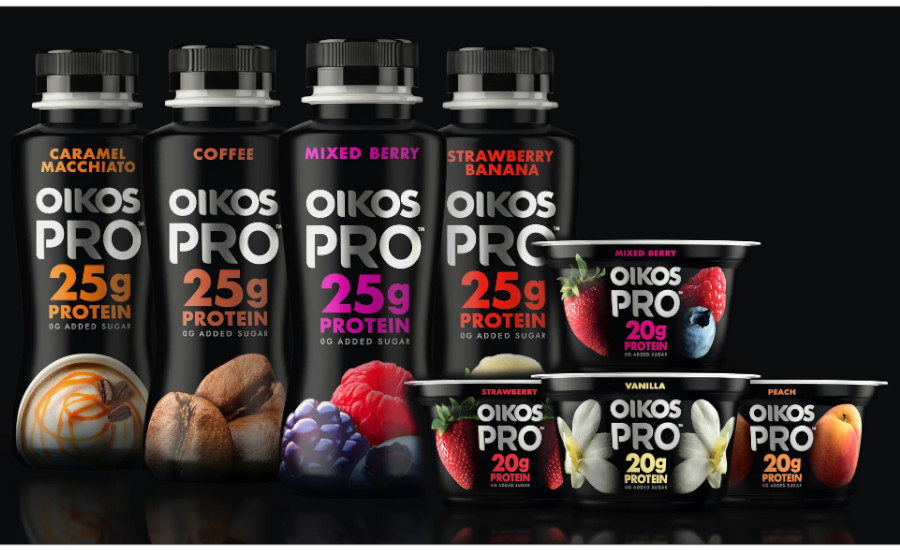
Outside the yogurt space, HP Hood LLC, Lynnfield, Mass., recently debuted Hood whipped cottage cheese, which boasts 13 grams of protein per serving. The full-fat product is rich and creamy and has a lighter, smoother texture than traditional cottage cheese, explains Chris Ross, senior vice president of marketing and research and development.
“Whipped expands usage occasions — delicious as a dip or spread, but still perfect by the spoonful as a protein-packed snack,” he says.
Speaking of protein, dairy has an edge here over plant-based products that make protein claims but do not deliver all of the essential amino acids.
“As a priority ingredient for consumers, it is great to see the conversation starting to help differentiate quality protein and other types,” says Sandfort.
And on the no-sugar front, Chobani LLC recently added new flavors to its Chobani Zero Sugar line. The flavors include Strawberry Cheesecake, Toasted Coconut Vanilla, Key Lime Pie, and Milk & Cookies. Like all other Chobani Zero Sugar products, these dessert-inspired flavors have 60 calories and are lactose-free, and an excellent source of protein. They contain six live and active cultures, including probiotics, and zero total sugar, Chobani says.
“As consumers shift to being more health-conscious and demand better options with less sugar, Chobani continues to answer the call,” Sandfort says. “[Chobani Zero Sugar] is made naturally through the art and science of fermentation — harnessing live and active cultures that consume the sugar. Our product also delivers an excellent source of high-quality protein.”
Eye sustainability
Consumers’ definition of health is evolving, too, to include the planet’s health in addition to their own health, says Silveira.
“As a result, we’ve seen a rise in flexitarian diets as consumers look to incorporate more plant-based products into their diets,” he maintains. “They view plant-based products as good for themselves and for the planet. These lifestyle changes and generational trends are influencing the transformation of the yogurt aisle, from traditional to unexpected and exciting.”
Danone North America tapped into this trend recently with the introduction of its Silk Greek yogurt alternative line. As Silveira notes, it is the first plant-based yogurt alternative boasting the traditional texture of a Greek yogurt.
“Additionally, we recently introduced a new line of So Delicious ‘coconutmilk’ yogurt alternatives with botanical extracts,” he says. “These products have live and active cultures and mind-blowing taste in three rich, feel-good flavors.”

And last summer, New York-based Icelandic Provisions launched “oatmilk” skyr. The first of its kind, this nondairy skyr is said to be creamy, delicious and nourishing, like the brand’s traditional skyr.
Made with “oatmilk” from naturally irrigated oats grown in the Nordic region, Icelandic Provisions “oatmilk” skyr was developed in partnership with MS Iceland Dairies, Iceland’s oldest cooperative of family-run dairy farms. It is made with 1,000-year-old traditional skyr-making methods and heirloom Icelandic cultures — cultivated to grow in a nondairy environment for the first time, Icelandic Provisions says.
The product’s overall “story” is important, too. After all, a growing number of consumers believe their purchasing decisions have an impact on society. As Silveira points out, these consumers care about the origin of their food, how it was grown, how it reached their table, and how it impacts both their health and that of the planet.
Size it for snacking
Some trends impacting the cultured dairy category are not related — a least not directly — to consumers’ health and wellness needs. As Darin Copeland, public relations manager for Edwardsville, Ill.-based Prairie Farms Dairy Inc., points out, the snacking “trend” is huge. Almost half of all demographic groups report that they cannot get through the day without snacking.
“Consumers are looking for products that deliver convenience and flavor indulgence for anytime snacking,” he says. “A large segment of these consumers are also health-conscious and looking for ways to meet their protein needs.”
Prairie Farms Dairy responded to consumer needs here with the recent introduction of 5-ounce small-batch cottage cheese cups. Sized for snacking, the products are offered in a variety of sweet and savory flavors. Each single-serving cup also has 12 to 14 grams of protein.
Petaluma, Calif.-based Clover Sonoma also had healthy snacking in mind with the recent launch of Clover the Rainbow organic yogurt smoothies for children. The drinkable yogurt with fruit and vegetables comes in 6-ounce bottles in three flavors: Strawberry Carrot, Blueberry Beet, and Strawberry Banana Butternut.
Each smoothie is a good source of protein and calcium, has billions of probiotics to help support gut health, is made with real fruit and veggies, and has no artificial flavors or sweeteners. Clover the Rainbow organic smoothies are also the only American Humane Certified smoothies in the dairy aisle, Clover Sonoma says.
Pour on the flavor
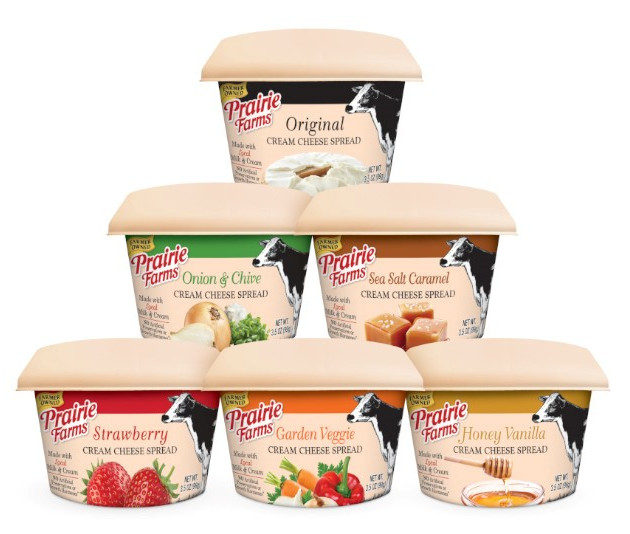
Flavor variety long has been a trend in the yogurt space, but that trend has been expanding to other cultured dairy categories in recent years. For example, this past winter HP Hood introduced Hood cottage cheese featuring everything bagel seasoning.
“We know that everything bagel seasoning has been everywhere for the past few years, and consumers tell us they’re still craving more of it,” says Ross. “Hood cottage cheese with everything bagel seasoning … offers a delicious ‘everything’ bite filled with onion, garlic, flaxseed, and poppy seed. Our unique formula provides a perfectly blended taste every time.”
For its part, Prairie Farms Dairy launched a lineup of spreadable, small-batch cream cheese cups in 2021 — in both sweet and savory flavors. The products took home top honors in Dairy Foods’ Best New Dairy Products 2021 poll and also fit in with the snacking trend.
“Prairie Farms small-batch cream cheese spreads offer personalized snacking and multiple flavors like Sea Salt Caramel and Onion & Chive to appeal to a wide variety of consumer tastes,” Copeland says. “They’re made with award-winning Prairie Farms Neufchâtel cheese without artificial flavors, colors, preservatives, or growth hormones.”
Looking for a reprint of this article?
From high-res PDFs to custom plaques, order your copy today!




